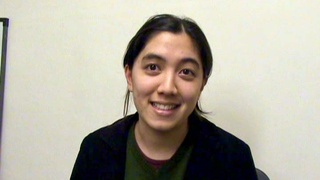Interviews
Running a laundry service in Argentina (Japanese)
(Japanese) In Rosario, (my uncle ran) a laundry service—he ran a laundry service out of two houses.
I*: Was that store (house) a large one?
Why, yes, it was grand. It was a very large house, with a full basement. It’s now where Paraguay and Rioja (street names) cross. Back then, during the night you would hear a lot of rattling, or other loud noises
I: What were those noises?
Robbers. But I put a large bar sideways on the other side of the puerta (door) to keep it locked, so they couldn’t get in. So yes, it was near Centro, by Rioja street and Paraguay Street. In the next city over there was the Cordova street, for which you take Paraguay and San Martin Avenue. Just like the Florida street here in Buenos, no cars can get through.
I: At the time, it was your first experience working a laundry service, right?
Yes. But everyone worked as a laundryman.
I: How was your work as a laundryman? Was it difficult?
No, not really. You wash wash each order by hand, using this nice machine. You mix in the soap and water, and wash it clean.
* ”I” indicats an interviewer.
Date: November 28, 2006
Location: Buenos Aires, Argentina
Interviewer: Takeshi Nishimura, Ricardo Hokama
Contributed by: Centro Nikkei Argentino
Explore More Videos

Surviving after father's death
An expert researcher and scholar on Japanese immigrant clothing.

Washing for Filipino bachelors
An expert researcher and scholar on Japanese immigrant clothing.

Nikkei means fusion (Spanish)
(b. 1969) Former president of Centro Nikkei Argentino.

History of her family's immigration (Spanish)
(b. 1969) Former president of Centro Nikkei Argentino.

Jobs for Japanese Argentines (Spanish)
(b. 1969) Former president of Centro Nikkei Argentino.

Nihongo gakko - Preserving Japanese culture (Spanish)
(b. 1969) Former president of Centro Nikkei Argentino.

Identity crisis (Spanish)
(b. 1969) Former president of Centro Nikkei Argentino.



Decided to leave Japan to Argentina (Spanish)
(1925-2014) La Plata Hochi, Journalist

Tango makes him to stay in Argentina (Spanish)
(1925-2014) La Plata Hochi, Journalist


His first jobs in Argentina (Spanish)
(1925-2014) La Plata Hochi, Journalist


Conflicting relations between Argentina and Japan (Spanish)
(1925-2014) La Plata Hochi, Journalist
